Santosh Choubey : Founder and Chairman of AISECT Group


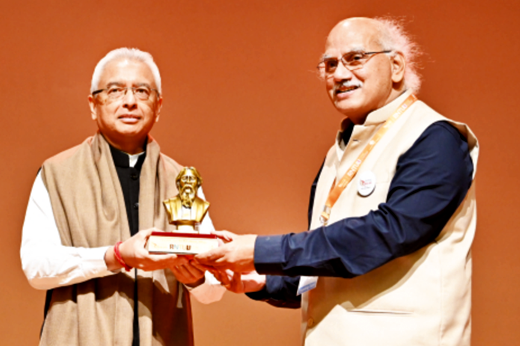
2024
Vishwarang 1st International Edition in Mauritius
2023
National Centre for Skill Development and Entrepreneurship, Bhopal
NCSDE is a flagship initiative aligned with NEP 2020, and aims at bridging academia and industry. It offers students hands-on experience through workshops, internships, and real-world projects, enhancing employability. NEP-LEAP includes credit-based NEP and NSQF-aligned courses, soft skills training, and personalized placement support. It is now operational in over 100 institutions across the country.

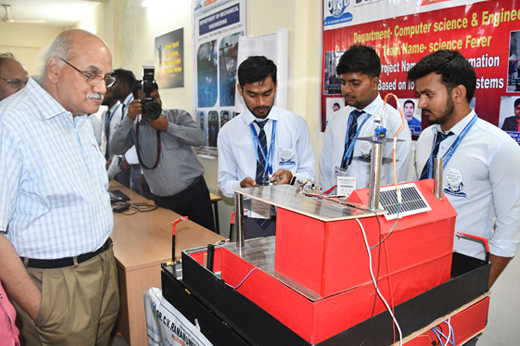

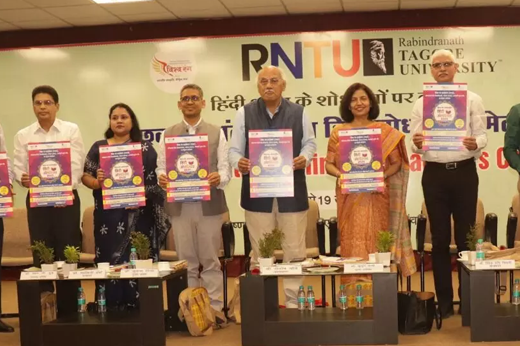
2023
Tagore International Hindi Centre, Bhopal, M.P.
The Tagore International Hindi Centre, established at RNTU, is dedicated to the global promotion of the Hindi language, literature, and culture. It has developed engaging online courses in Hindi, English, and Roman scripts. Agreements have been signed with institutions like UK Hindi Samiti in over 50 countries to expand Hindi teaching. Through digital content, translation projects, and a strong global network, the Centre aims to unite Indian diaspora and strengthen Hindi’s global presence. It has brought out the first Vishwa Mein Hindi Report, covering the status of Hindi in 65 countries.
2023
SCOPE Global Skills University, Bhopal, M.P
SCOPE Global Skills University (SGSU) is Central India’s First NEP and NSQF Aligned Skills University. Established in 2023 in Bhopal, Madhya Pradesh. SGSU is a leading education and skill development organization in India. SGSU creates industry ready professionals by training students on industry-relevant skills, with skill embedded programmes in Industries. Has over ten centres of Excellence on Campus with leading Industries to train students for ready employment.

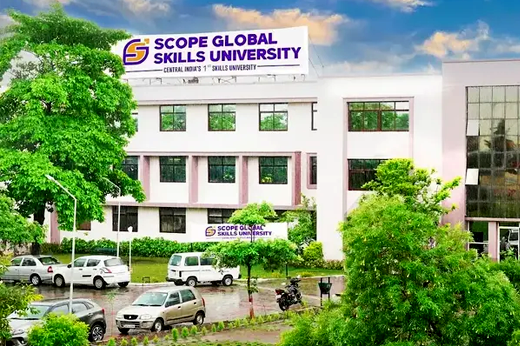

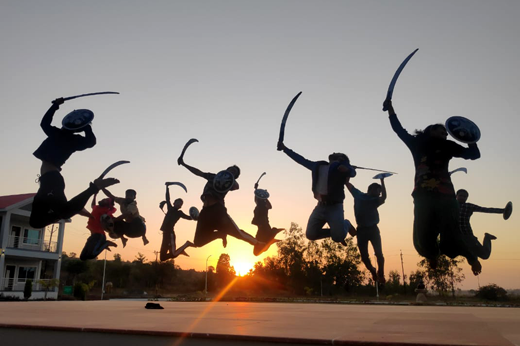
2021
Tagore National School of Drama, Bhopal, M.P.
The Tagore National School of Drama is a drama academy affiliated with Rabindranath Tagore University Bhopal. It was established in July 2021, making it the first such drama academy run by a private university. Its main objectives include fostering creativity, developing artistic talent, and providing professional training in theatre. The school offers courses in acting, direction, scriptwriting, and stage management. A `Theatre in Education’ repertory is now coming up in the TNSD.
2019
Vishwarang Foundation, Bhopal, M.P.
Vishwarang, Global Cultural Festival, was started in 2019 by Santosh Choubey at Rabindranath Tagore University (RNTU) as a global platform celebrating Indian literature, culture, art, music and cinema. It is one of the biggest festivals to promote and spread Indian culture across the world. The last festival was organized in Mauritius. Over 50 countries are a part of this festival now.

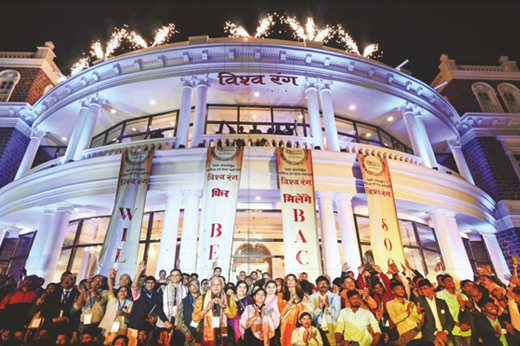


2018
Tagore International Centre for Arts and Culture, Bhopal
The Tagore International Centre for Arts and Culture (TICAC) in Bhopal is an interdisciplinary research and study centre within Rabindranath Tagore University (RNTU). It focuses on arts, literature, and culture, organizing research, workshops, and conferences. Apart from this, other centers work in the fields of translation, international language, and tribal art and culture are also established under their umbrella.
2018
Dr. C.V. Raman University, Khandwa, M.P.
C.V. Raman University was established in Khandwa district of Madhya Pradesh in 2018. Khandwa falls in the predominantly Rural and Tribal area of Madhya Pradesh. It is the first to send students to Germany under student exchange programmes. The University focuses an Agriculture Education and Research, Social Work and Rural Development keeping to the priority of the region. Has patents in Agricultural Research.

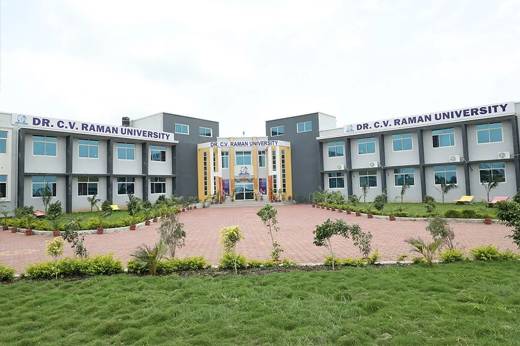

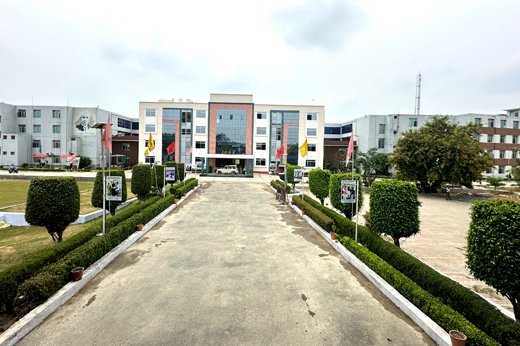
2017
Dr. C.V. Raman University, Vaishali, Bihar
CVRU Bihar has been established in the year 2017 and is the first private university in the region of North Bihar, which is dedicated to achieving excellence in education and research in Bihar. It is a multidisciplinary University aiming at providing quality affordable education in Bihar thus checking migration of Bihar students to other states. Is known for its Engineering and Skill education. Also has a Buddhist study Centre.
2016
AISECT University, Hazaribagh Jharkhand
AISECT University was established in Hazaribagh district of Jharkhand in 2016 as the region’s first private University and the first Skills University of the State. It is a skill-based university which aims to bridge the skill gap in available workforce and the industry requirements in Jharkhand. Its partnership with government initiatives is visible in the Mega Skill Centres run by it in Hazaribagh and Girideeh. A change maker in this LWE district.

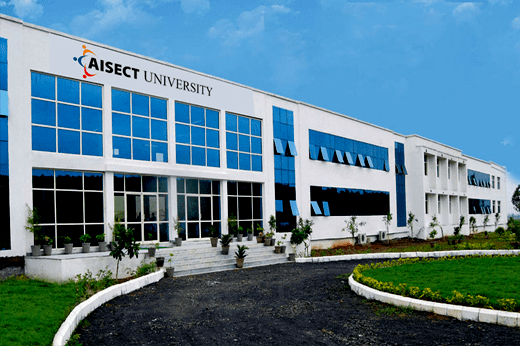

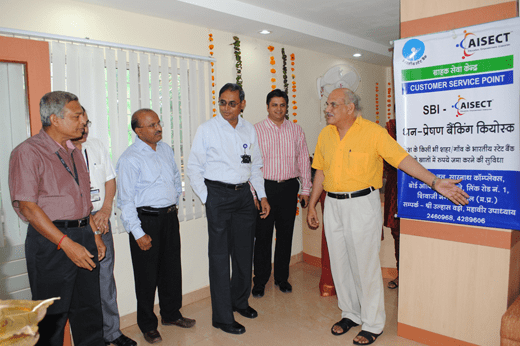
2012
FINANCIAL INCLUSION NETWORK
Transforming Banking Services
AISECT became a prominent Financial Inclusion Network in India in 2012, engaging in BF, BC, and UID activities with leading banks. This section explores AISECT's impact on financial inclusion.
2010
Rabindranath Tagore University, Raisen, M.P.
RNTU, established in 2010, is the 1st private university in central India in an underdeveloped district of Raisen. It imbibes cultural values of Gurudev Rabindranath Tagore, first Nobel laureate from India. RNTU focuses on Arts, Humanities and Liberal arts and is the first to implement NEP in Madhya Pradesh. It has nine Nav Ratna centres promoting Research in Agriculture, Material Science, Water and Energy and the first Atal Incubation Centre of M.P. to foster micro entrepreneurship. Vishwa Rang foundation, Tagore International Hindi Centre and Tagore Drama School are the highlights of Saptrishi Centres in Humanities and Liberal Arts.

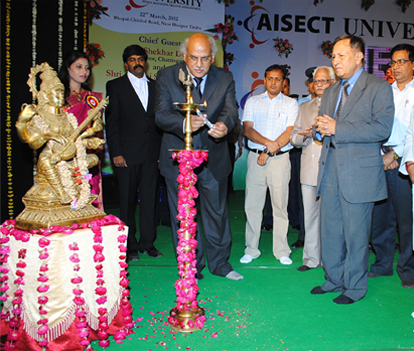

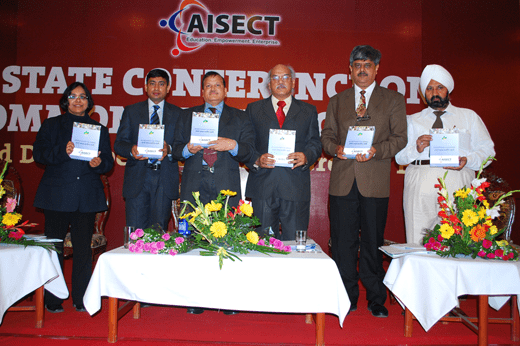
2008
AISECT: A KEY PLAYER IN THE CSC PROJECT
AISECT Set Up Over 5000 IT Kiosks at the Grassroots Level
AISECT participated as a leading Service Centre Agency in the execution of the Common Service Centre Project (for setting up Panchayat level IT kiosks) under the National e-Governance Plan in Madhya Pradesh, Chhattisgarh, and Punjab with the Ministry of Communication & IT, Govt. Of India and established more than 5000 CSCs at Gram Panchayats of these states.
2006
NASSCOM I.T. Innovation Award
AISECT gets the NASSCOM I.T. Innovation Award from Dr. A. P. J Abdul Kalam.



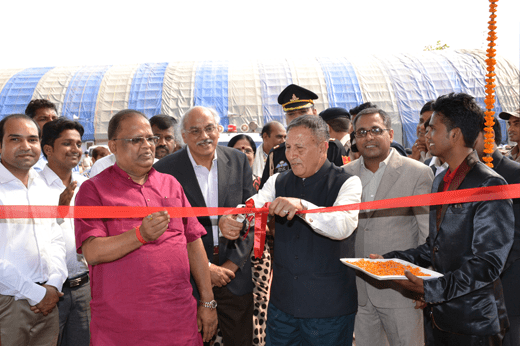
2006
Dr. C.V. Raman University, Bilaspur, C.G.
CVRU Bilaspur, a university set up in a scheduled tribal block in 2006, is named after Nobel laureate Sir C.V. Raman and focuses on Science and Technology education, skill development, sports, and promotion of local tribal culture for the predominantly tribal students in the area. An Incubation Centre, a Community Radio, Future Skills Academy, Energy Park, and Pradhan Mantri Kaushal Kendra are highlights of this University.
2005
A PIONEER IN IT EDUCATION AND SERVICES
How AISECT Won the Indian Innovation Award from Dr. Kalam
AISECT becomes a leading IT Training and Services Network in India, receiving the Indian Innovation Award from the then President of India, Dr. A.P.J. Abdul Kalam.

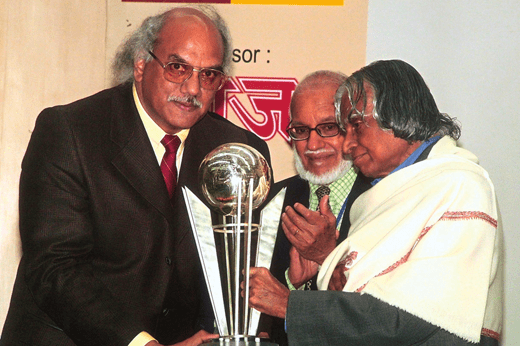

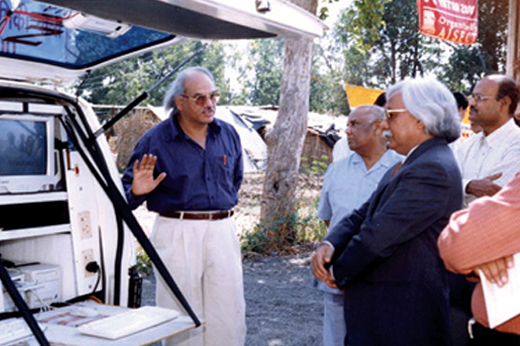
2000
IT Yatras
I.T. Yatras conducted in Madhya Pradesh, Maharashtra and Chhattisgarh
1999
AISECT EVOLVED ITS OWN MULTIPURPOSE IT CENTER MODEL
Acknowledged by the World Bank and IIMA
AISECT evolved its own Multipurpose IT Centre model for the first time to cater rural and semi urban milieu, it was acknowledged and published in IIM-Ahmedabad and World Bank Report the same year.
This year only, first pilot e-Governance initiative “Suchna- Mitra” was conducted in Kotmi Sonar block of Chhattisgarh.

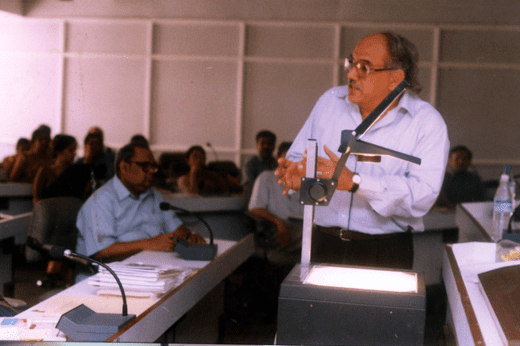

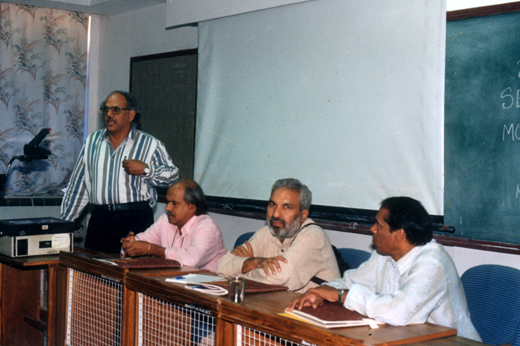
1995
SANTOSH’S LEADERSHIP AND ACHIEVEMENTS
Honored as the Core Group of Department of Science and Technology, Govt. of India
The society established by Santosh, SECT was honored as the Core Group of Department of Science and Technology, Govt. of India under his able leadership for 10 years. Also the State Resource Centre for Literacy formed with Ministry of Human Resource Development, Govt. of India.
1992
INDIAN LITERACY MOVEMENT
Literacy Campaigns
Makes leading contribution in Indian literacy movement through the Literacy Campaigns in undivided Madhya Pradesh. Uses art forms for promotion of Science and Literacy in rural areas.

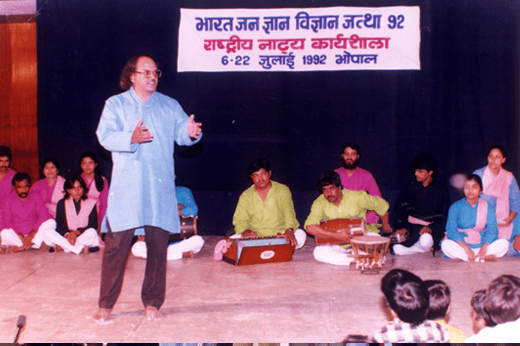

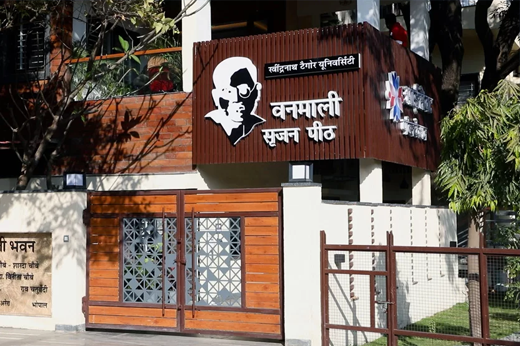
1991
Vanmali Srujanpeeth, Bhopal, M.P
Vanmali Srujan Peeth and Vanmali Srujan Kendras are a grassroots level literary and cultural initiative of Santosh Choubey. Over 114 VSKs promote local arts and culture and provide platform to local talents. Has conducted heritage products like Katha Madhya Pradesh, Katha Desh, Vigyan Katha Kosh and Vigyan Kavita Kosh. Also conducts pustak yatras every year to promote reading and book culture among students.
1990
LITERACY PROMOTION
Transforming Minds through Education
During the 1990s, Santosh Choubey played a pivotal role in promoting literacy through campaigns and art forms in undivided Madhya Pradesh. His contributions led to the formation of the State Resource Centre for Literacy, among other achievements. This timeline delves into his influential role in literacy promotion.

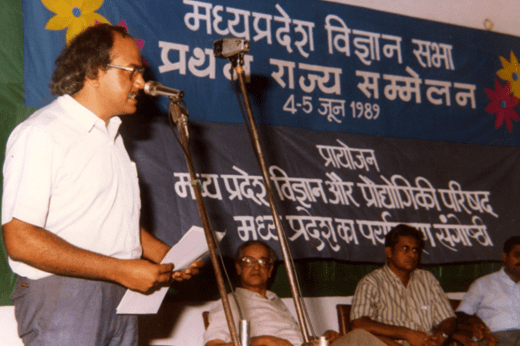


1989
Electroniki
The first Indian magazine on electronics and computers in Hindi launched. It has been published continuously for the last 35 years and has won many accolades.
1986
A STEP TOWARDS THE PROMOTION OF COMPUTER SKILL
Vision of empowering rural and semi-urban Publishes his first book on Computers in Hindi titled "कंप्यूटर एक परिचय".

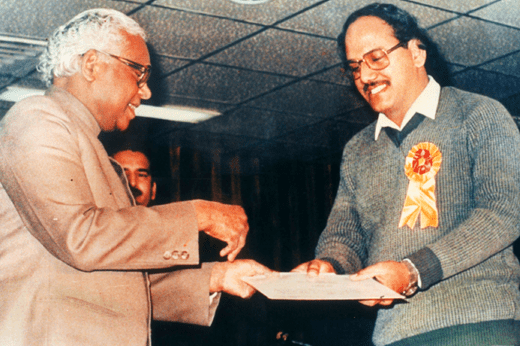

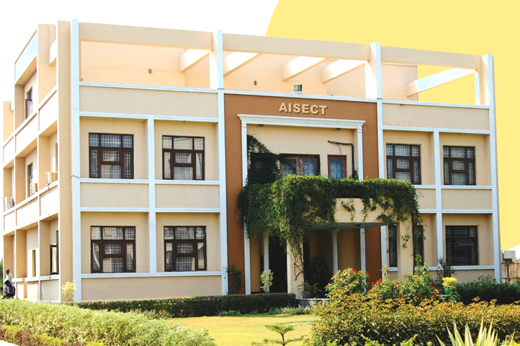
1985
All India Society for Electronics and Computer Technology (AISECT)
Founded by Santosh Choubey four decades ago, AISECT is India’s leading social enterprise with a pan-India grassroots network delivering digital education, skill development, financial inclusion, and e-governance services to rural and semi-urban communities, with Its Universities providing inclusive and employment-linked education to thousands of youth. Santosh strikes a balance between Science, Technology and Culture and under his leadership, cultural platforms like Vishwarang and Vanmali Srijan Peeth celebrate Indian heritage globally, organizing six international festivals across continents and building a literary and cultural network in over 50 countries. This provides unique integration of education, empowerment, and cultural renaissance.
1977
SELECTED IN INDIAN ENGINEERING SERVICES
Research Engineer to Civil Services
In 1977, he achieved the remarkable milestone of being selected in the Indian Engineering Services. This section delves into his initial career endeavors.

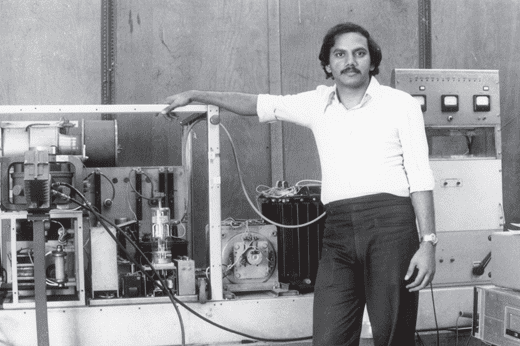

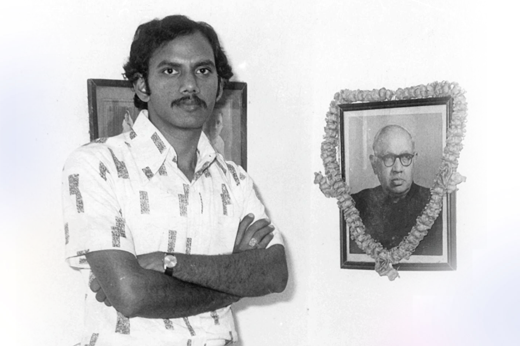
1955
Mr. J.P. Chaubey and Mrs. Sharda Chaubey were blessed with a son on 22nd September, 1955 at Khandwa, Madhya Pradesh, India. joined Government Multipurpose Higher Secondary School, Khandwa, Madhya Pradesh, India. and Selected for Bachelor of Engineering (Electronics & Communication Engineering) in 1971 at Maulana Azad National Institute of Technology, Bhopal, Madhya Pradesh.